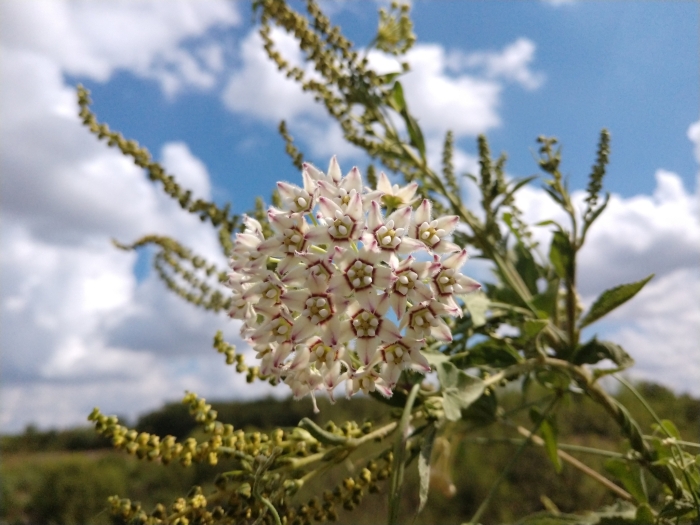Fringed Twinevine
(Funastrum cynanchoides)
Fringed Twinevine (Funastrum cynanchoides)
/
/

Cleveland Powell
CC BY 4.0
Image By:
Cleveland Powell
Recorded By:
Copyright:
CC BY 4.0
Copyright Notice:
Photo by: Cleveland Powell | License Type: CC BY 4.0 | License URL: http://creativecommons.org/licenses/by/4.0/ | Rights Holder: Cleveland Powell | Publisher: iNaturalist | Date Created: 2019-09-10T12:05:53-07:00 |



















































Estimated Native Range
Summary
Funastrum cynanchoides, commonly known as Fringed Twinevine, is a deciduous perennial vine native to arid and semi-arid regions, including desert scrub, rocky slopes, and open woodlands in the Southwestern USA and Mexico. It is a twining vine that can reach lengths of up to 10 feet, using other shrubs for support. In urban areas, the vine is known to climb on various structures and plants, showing a particular affinity for chain link fences in less maintained spaces. The plant is characterized by its milky sap and a somewhat pungent odor. Its leaves are narrow, arrowhead-shaped, opposite, and measure 1 to 1 1/2 inches long. The flowers, which are pink to purplish, are produced in umbrella-like clusters called umbels and are known to attract butterflies, serving as a nectar source similar to other milkweeds.
Fringed Twinevine is valued for its ability to thrive in hot, dry climates with minimal water requirements, making it suitable for xeriscaping and as a naturalizing element in gardens. It is also used for its ornamental flowers and as a habitat plant for butterfly gardens. This vine prefers full sun exposure and well-drained soils, and it is relatively low maintenance once established. However, gardeners should be cautious as its rapid growth can sometimes lead to it becoming weedy or invasive in certain areas.CC BY-SA 4.0
Fringed Twinevine is valued for its ability to thrive in hot, dry climates with minimal water requirements, making it suitable for xeriscaping and as a naturalizing element in gardens. It is also used for its ornamental flowers and as a habitat plant for butterfly gardens. This vine prefers full sun exposure and well-drained soils, and it is relatively low maintenance once established. However, gardeners should be cautious as its rapid growth can sometimes lead to it becoming weedy or invasive in certain areas.CC BY-SA 4.0
Plant Description
- Plant Type: Vine
- Height: 3-9 feet
- Width: 6-9 feet
- Growth Rate: Moderate
- Flower Color: White
- Flowering Season: Summer
- Leaf Retention: Deciduous
Growth Requirements
- Sun: Full Sun
- Water: Low, Medium
- Drainage: Fast
Common Uses
Bee Garden, Butterfly Garden, Deer Resistant, Fragrant, Low Maintenance, Showy Flowers
Natural Habitat
Arid and semi-arid regions, including desert scrub, rocky slopes, and open woodlands
Other Names
Common Names:
Scientific Names: , Funastrum cynanchoides, Sarcostemma cynanchoides, Gonolobus viridiflorus, Sarcostemma cynanchoides subsp. cynanchoides, Funastrum cynanchoides subsp. cynanchoides, Philibertia cynanchoides, Sarcostemma cynanchoides var. cynanchoides, Philibertella cynanchoides, Philibertia cynanchoides var. subtruncata
GBIF Accepted Name: Funastrum cynanchoides (Decne.) Schltr.